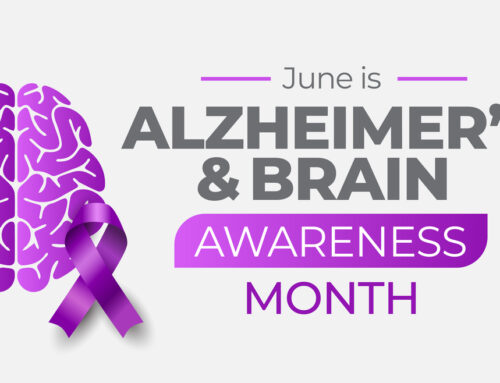New Alzheimer’s treatments seem painfully slow to emerge for those currently living with the disease or watching a loved one suffer. Medications presently available temporarily improve symptoms of memory loss, thinking, and reasoning, but they don’t stop the decline and death of brain cells. Discovering how to control that decline is akin to the holy grail in Alzheimer’s research and would offer millions of people hope. Although there is no guarantee that a cure is imminent, there is a reason for optimism. FirstLantic explores five different Alzheimer’s treatment paths in the research phase that are showing promise.
- Saracatinib. A drug initially developed as a possible cancer treatment is now being tested for Alzheimer’s treatment. In studies, Saracatinib turned off a protein that allowed synapses to start working again, resulting in a reversal of some memory loss. Human trials are now underway.
- Bumetanide. This generic drug is used widely to treat the swelling associated with hypertension and heart failure. However, Bumetanide showed promise in early research that it may also prevent the devastating brain damage of Alzheimer’s disease. Findings reported in Nature Aging show how the drug reversed signs of Alzheimer’s in mice and human brain cells in lab dishes.
- Alzheimer’s Vaccine. A nasal spray is being tested in a phase one trial using an immune modulator called Protollin to help boost immune response. Protollin, made of proteins derived from bacteria, is supposed to “activate white blood cells found in the lymph nodes on the sides and back of the neck to migrate to the brain and trigger clearance of beta-amyloid plaques. The trial is the culmination of nearly two decades of research by Dr. Howard L. Weiner, co-director of the hospital’s Ann Romney Center for Neurologic Diseases.
- Aducanumab. Aducanumab is the first drug approved in the United States to treat the underlying cause of Alzheimer’s by targeting and removing amyloid plaques in the brain. The FDA approved the drug on the condition that further studies confirm the drug’s benefit. Unfortunately, the drug developed by Biogen is riddled with controversy over everything from the approval process, the exorbitant price, and its’ efficacy. That said, there are other drugs in the monoclonal antibody family showing promises, such as Lecanemab (another Biogen developed drug) and Donanemab, which Ely Lilly is testing.
- Mind-Body Connection. Evidence shows a connection between brain and heart and blood vessel health. The risk of Alzheimer’s increases when the heart or arteries are damaged by conditions such as diabetes, high blood pressure, and heart disease. Therefore, researchers are now studying whether drugs used to treat heart disease could be used to treat patients with dementia.
Summary
So, until there is a cure for Alzheimer’s, what can be done? Well, there are steps we can all take to keep our brains as healthy as possible. For example, it’s believed that eating a Mediterranean diet and regular exercise can prevent or delay Alzheimer’s disease. Experts recommend 150 minutes of exercise a week. A study conducted by the National Institute on Aging (NIA) found healthy lifestyle behaviors create a “substantially lower risk” for Alzheimer’s. Beyond exercise and healthy eating, stimulating your brain with new challenges can also help by studying a language, taking a course, or doing a crossword every day. Music therapy has also been shown to be beneficial for those who already have dementia. Dr. Klodian Dhana, assistant professor at Rush University, who led the NIA study, said, “those who practiced two or three of the positive lifestyle choices had a 37% lower risk, and those with four or all five had a 60% reduction in the risk of Alzheimer’s.
If you or a loved one have questions about home care, FirstLantic Healthcare can help. Click here for more information.
To read other FirstLantic blogs, click here.
For information on Alzheimer’s treatments and support, click here
 AVAILABLE 24 HOURS A DAY/7 DAYS A WEEK
AVAILABLE 24 HOURS A DAY/7 DAYS A WEEK Careers
Careers







